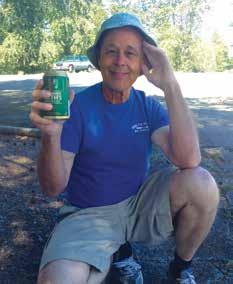THE EDUCATION OF BC NOTARIES
Some Reflections on the Creation of the “MA-ALS” Program at SFU
A
t the time of writing, March 2021, more than 50 per cent of practising Notaries in British Columbia are graduates of SFU’s MA in Applied Legal Studies (MA-ALS) Program. For those closely associated with the Program, that statistic is immensely gratifying especially since both the development and the implementation of a professional graduate program like MA-ALS involves a range of significant challenges. They include securing the initial approval and then the actual support (fiscal and otherwise) of the upper echelons of the affected university (including the university senate); identifying and hiring qualified, committed, and energetic faculty and staff; recruiting and retaining qualified prospective graduate students; and generating and maintaining the support of the affected professional bodies. The list is not exhaustive.
12
TABLE OF CONTENTS
Robert M. Gordon, PhD
©iStockphoto.com/Brendan Hunter
There is little doubt that teamwork lies at the heart of a successful professional graduate program and that was a key characteristic of the MA-ALS partnership from its inception.
It wasn’t always a match made in heaven but, in the end, the process and the outcome reflected a happy and productive union. From the early 2000s onward, numerous conversations took place at various locations (some more informal than others), focused on the best ways of meeting the objectives of both The Society of Notaries Public and the University. It wasn’t always a match made in heaven but, in the end, the process and the outcome reflected a happy and productive union. There were, in essence, two teams of people involved with the MA-ALS project—one led by Wayne Braid, then BC Notaries Association
Executive Director of The Society of Notaries Public, and the other led by me, a Professor in the School of Criminology at SFU and, at the time, the Director of the School. The corporate memory recalls several informal meetings between the two team leaders (and often other key individuals), held in the true Athenian tradition over the course of several years. There was a consequential open exchange of ideas, lubricated and sometimes memorable Socratic dialogues, and the generation of creative solutions to numerous problems, some foreseen, others less so. A happy moment came when the two team leaders sat together on the floor (not literally) of the Senate at SFU to answer questions and witness the Senate’s approval of the application for what was, at the time, a new and unique degree program. In the course of the development phase, several challenges had to be addressed. There was no precedent to follow in Canadian common law jurisdictions, no equivalent program upon Volume 30 Number 1 Spring 2021

























